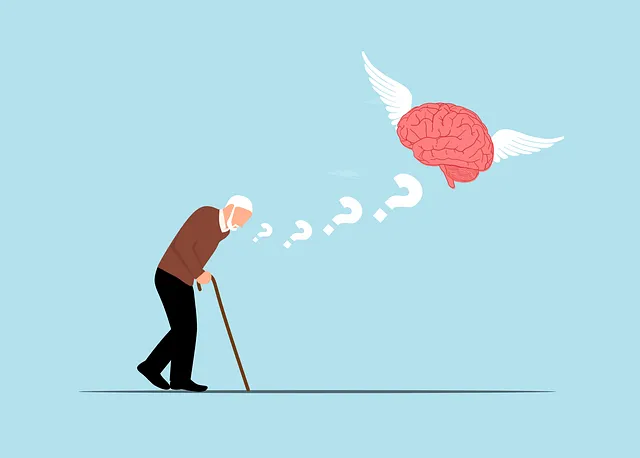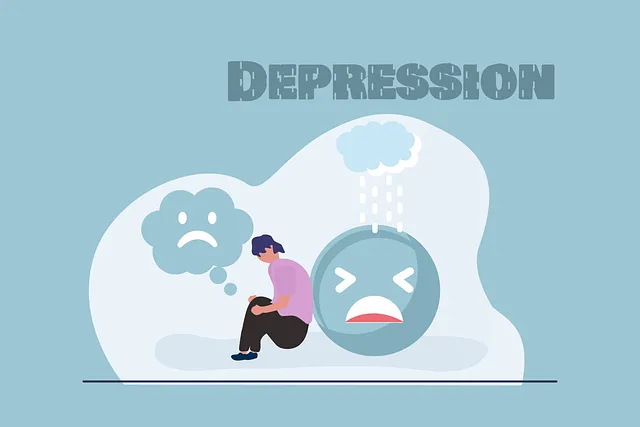Cultural competency is key in healthcare, especially in diverse areas like Colorado Springs, where biases can negatively impact patient care. Kaiser's services here prioritize this through training programs and community outreach, offering tailored mental health care that respects cultural identities. Their comprehensive approach includes therapy, education, and awareness campaigns to reduce stigma. With specific focus on emotional intelligence, these initiatives enhance patient satisfaction and outcomes, addressing the need for accessible mental health resources in Colorado Springs, as evidenced by successful case studies.
Healthcare provider cultural competency training is a vital component of delivering equitable care, especially in diverse communities like Colorado Springs. This article explores the necessity of cultural competency within healthcare systems, focusing on how biases impact patient outcomes and highlighting Kaiser’s mental health services in the region. We discuss effective training strategies to enhance cultural awareness and present case studies demonstrating the creation of inclusive healthcare environments. Additionally, we address how these practices align with access to mental health therapy covered by Kaiser in Colorado Springs.
- Understanding Cultural Competency in Healthcare: A Necessary Framework
- The Impact of Cultural Biases on Patient Care and Outcomes
- Kaiser's Mental Health Services in Colorado Springs: An Overview
- Training Strategies for Healthcare Providers to Enhance Cultural Awareness
- Building Inclusive Healthcare Environments: A Case Study Approach
Understanding Cultural Competency in Healthcare: A Necessary Framework

Cultural competency in healthcare is a crucial framework that ensures providers offer quality care to diverse patient populations. It involves understanding and appreciating cultural differences, beliefs, values, and behaviors, allowing healthcare professionals to provide more personalized and effective treatment. In Colorado Springs, for instance, where Kaiser does cover mental health therapy, culturally competent care becomes even more vital given the region’s demographic diversity.
This competency goes beyond mere knowledge of different cultures; it equips providers with essential skills like effective communication, active listening, and empathy. By integrating these abilities, healthcare workers can navigate complex patient-provider interactions, resolve conflicts using suitable techniques, and improve self-esteem and emotional regulation among individuals from various backgrounds. Moreover, culturally competent practices foster trust, enhance patient satisfaction, and contribute to positive health outcomes, ultimately reflecting the quality of care offered by organizations like Kaiser in vibrant communities such as Colorado Springs.
The Impact of Cultural Biases on Patient Care and Outcomes

Cultural biases among healthcare providers can significantly impact patient care and outcomes, especially in diverse communities like Colorado Springs. When healthcare professionals hold unconscious stereotypes or assumptions about different cultural groups, it leads to miscommunication, mistrust, and potentially inadequate treatment plans. For instance, a provider’s bias might influence their perception of a patient’s symptoms, leading to delayed diagnoses or incorrect treatments. This is particularly critical in mental health care, where emotional intelligence and understanding are paramount.
In the case of Colorado Springs, where Kaiser does offer mental health therapy services, cultural competency training becomes even more essential. Mental wellness coaching programs focused on development can equip healthcare providers with the skills to navigate complex cultural landscapes. By fostering inner strength through emotional intelligence, these programs help professionals recognize and mitigate their biases, ensuring every patient receives personalized care tailored to their unique cultural background. This, in turn, promotes better health outcomes and strengthens the trust between healthcare providers and diverse communities.
Kaiser's Mental Health Services in Colorado Springs: An Overview

Kaiser’s Mental Health Services in Colorado Springs offer a comprehensive range of care designed to address the unique needs of the diverse community. With a focus on cultural competency, the provider ensures that services are accessible and tailored to individuals from various backgrounds. This commitment is reflected in their Community Outreach Program Implementation, which aims to bridge gaps in healthcare access. Through partnerships with local organizations, they provide resources and education aimed at promoting emotional well-being and teaching effective Stress Reduction Methods. The program’s success lies in its ability to connect with hard-to-reach populations, fostering trust and encouraging the pursuit of mental health therapy for all.
The services available include individual and group therapy sessions, medication management, and specialized programs catering to specific mental health conditions. By integrating traditional and innovative treatment approaches, Kaiser Colorado Springs ensures that patients receive holistic care that respects their cultural identities. This comprehensive approach not only addresses immediate mental health concerns but also empowers individuals with the tools to maintain long-term emotional stability, thereby improving overall community resilience.
Training Strategies for Healthcare Providers to Enhance Cultural Awareness

Healthcare provider cultural competency training plays a pivotal role in enhancing patient care and outcomes, especially in diverse communities like Colorado Springs. Training strategies should focus on fostering cultural awareness and sensitivity among healthcare professionals to bridge the gap between different ethnic, cultural, and socioeconomic backgrounds. Interactive workshops, case study discussions, and role-playing scenarios can significantly improve providers’ understanding of cultural nuances and implicit biases, allowing them to offer more personalized and effective treatment.
One effective approach is incorporating Mental Illness Stigma Reduction Efforts into training programs. By addressing the stigma associated with mental health issues across various cultures, healthcare providers can create a safer and more inclusive environment for patients seeking therapy. Additionally, developing and promoting Mental Wellness Podcast Series Production can engage a wider audience in conversations about mental wellness, fostering public awareness and understanding. Equally important is initiating Public Awareness Campaigns Development to educate communities about available resources, dispelling myths, and encouraging early intervention and treatment-seeking behaviors.
Building Inclusive Healthcare Environments: A Case Study Approach

In Colorado Springs, healthcare providers can play a pivotal role in building inclusive environments that cater to diverse patient needs. A case study approach highlights successful initiatives where cultural competency training has been implemented. By focusing on emotional intelligence and fostering a culture of mental wellness, healthcare organizations like Kaiser can enhance patient care. This involves understanding and respecting patients’ unique backgrounds, beliefs, and experiences, especially regarding mental health. For instance, incorporating mental wellness journaling exercises and self-care routine development into training programs can equip providers with tools to support patients’ emotional well-being.
The case studies reveal that this approach not only improves patient satisfaction but also encourages healthcare providers to engage in ongoing self-reflection and growth. It enables them to navigate complex cultural terrains, ensuring every patient receives personalized care. Moreover, it addresses the growing demand for mental health services, especially as Kaiser Colorado Springs expands its coverage to include comprehensive mental health therapy options, catering to the diverse needs of the community.
Cultural competency training is a transformative tool in healthcare, particularly in diverse communities like Colorado Springs. As seen with Kaiser’s services here, addressing cultural biases through comprehensive training can significantly improve patient outcomes. By implementing the discussed strategies and learning from case studies, healthcare providers can create more inclusive environments, ensuring quality mental health care for all, including those seeking therapy in Colorado Springs. This approach is vital to meeting the diverse needs of today’s patients and fostering better community health outcomes.






